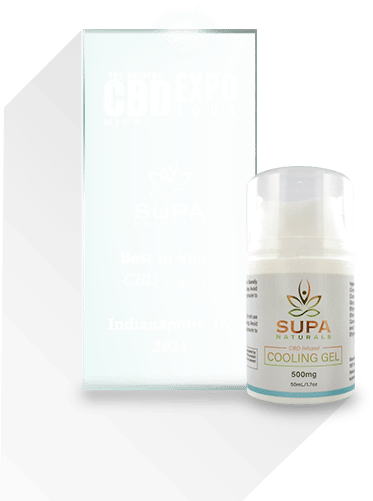Blog
- Filter by
- Categories
- Tags
- Authors
- Show all
October 27, 2022
In recent years, researchers have begun to explore the possible benefits of cannabis derivative cannabidiol (CBD) for a wide variety of physical and psychological problems. The […]
Do you like it?
October 27, 2022
Golf is a physically demanding, stressful, and often anxiety-inducing sport. Most golfers, professionals and amateurs alike, struggle with some challenging physical and mental effects of playing […]
Do you like it?
October 26, 2022
For a long time, most workers only dreamed of working from home. After the COVID-19 pandemic forced millions to become remote workers, many soon realized working from home is much harder than it seems.
One of the biggest causes of reduced productivity while working remotely is the many distractions we have to deal with at home. Fortunately, there is a product available that can help you focus while working at home: CBD oil. It is a solution that people have used successfully for years, and you are about to find out why.
In our most recent article we will look at CBD’s effect on the human body and how it can help you optimize productivity while working from home.
Do you like it?
October 26, 2022
It’s not a secret any longer – CBD is a substance with many health benefits. The CBD industry took off in popularity and success within the last five years—all for a good reason.
Scientific research shows CBD helps people to improve health issues in many areas, ranging from mild anxiety to cancer. People with chronic pain, muscle recovery, inflammation, acne, arthritis, and heart issues can also benefit from regular CBD use. The industry needs more scientific research to confirm these benefits, but the evidence becomes more convincing each year.
As the substance grows in popularity, there is an ever-increasing number of products on the market claiming to be the best, fastest-acting, and most potent. It can feel like an overwhelming process choosing the best option for you.
Ultimately, the best CBD product is the one that...
Do you like it?
August 16, 2022
CBD offers a world of health benefits, ranging from anxiety relief to pain management. However, if you're considering taking CBD, you may be wondering: does CBD show up on a drug test?
Typically, high-quality CBD does not show up on drug tests. However, some forms of CBD contain small amounts of THC, the psychoactive component in marijuana.
Taking too much CBD containing this compound may lead CBD users to fail a drug test.
Choosing a high-quality CBD product with undetectable THC content can help you avoid this problem. Read on to learn more about CBD and drug tests.
Does CBD Show In Blood Test?
CBD typically will not show up on a blood test unless it contains higher-than-legal THC content. In this case, the THC would show up on the blood test. Blood tests are some of the least common drug tests. Typically, when you need to undergo a drug test for a job, you would provide a urine, hair, or saliva sample rather than a blood sample. As a result, if someone is trying to detect THC in your bloodstream, they would likely need to request a blood test specifically for that purpose.Does CBD Show In Urine Drug Tests?
CBD can be detectable in your urine for up to five days after use. However, CBD usually does not appear on drug tests unless it contains high concentrations of THC. If you have taken an unreliable CBD product that contains more than 0.3% THC, the THC may produce a positive drug test. When you ingest a product that contains THC, your body breaks down the THC into metabolites. Eventually, your body eliminates the THC metabolites through your feces and urine. As such, THC may appear in a urine test or immunoassay test if you have recently consumed high levels of THC. Urine tests use antibodies that adhere to drugs and metabolites in the urine sample. When antibodies identify THC metabolites, your test could come back positive. Urine drug tests can come back positive when they detect at least 50 ng / mL of THC in a urine sample, which is the federal cutoff level. In order to hit this concentration after taking CBD, you would have to consume at least 2,000 mg of CBD that contains less than 0.3% THC. This amount of CBD is much higher than most users consume. If you’d like to avoid the possibility of CBD showing up on a urine drug test, be sure to choose a product that has been certified as THC-free. As an added precaution, you may want to avoid using CBD within five days of your scheduled urine drug test.Do you like it?
August 14, 2022
Over recent years, CBD has been steadily gaining interest among healthcare professionals and wellness enthusiasts. Despite the promising developments, a considerable number of people are, however, yet to understand CBD. Questions remain: How does CBD affect the body, and how long do CBD effects last? This article aims to answer these and a few more burning questions.
What Is CBD?
While most people might already be familiar with THC (Tetrahydrocannabinol), the main psychoactive component of a cannabis plant, CBD (Cannabidiol), is another cannabinoid extract of the cannabis plant. The difference between CBD and THC is that CBD isn’t psychoactive. This difference means that it does not get you high. Though CBD will not alter your state of mind when you use it, it still has specific effects on your body.How Does CBD Affect the Body?
Your body produces two receptors; CB1 and CB2. CB1 receptors are found throughout your body, most of them in your brain. They are responsible for coordinating thinking, movement, emotion, mood, memories, pain, and other functions. CB2 receptors are mostly found in your immune system, and they mainly affect pain and inflammation. All cannabinoids interact with these cannabinoid receptors, producing specific effects in your body. While THC attaches itself to CB1 receptors, CBD stimulates them, causing your body to create its own cannabinoids, referred to as endocannabinoids. This production reduces inflammation and pain and helps your body relax. Though CBD produces a calming and relaxing feeling without any mind-altering effects, how CBD can affect you will vary depending on the type of extraction. For instance, unlike hemp-derived CBD, marijuana-derived CBD could contain THC that would intoxicate you. You could also choose between full and broad-spectrum CBD. Full-spectrum CBD has a range of cannabis plant compounds like terpenes, flavonoids, cannabinoids, and THC content. Alternatively, broad-spectrum CBD only contains non-intoxicating compounds such as flavonoids and terpenes, among others. Broad-spectrum CBD begins as full-spectrum, undergoing an additional process meant to eliminate the intoxicating compounds.How Long Do CBD Effects Last?
CBD effects offer people relief from pain, anxiety, stress, and several other conditions. How long CBD effects last, however, varies considerably. That’s because several different factors determine the duration of CBD effects, as explained in our article.Do you like it?
August 14, 2022
So you've decided to try CBD (cannabidiol) oil and enjoy its wide range of benefits, including relief for pain, anxiety, arthritis, and other ailments. But the big question is: when is the best time to take CBD oil? Should you take CBD during the day or at night?
Generally, there's no definitive answer on when to take CBD. Some CBD enthusiasts consider morning, before breakfast, as the best time to take CBD to get the energy you need for the day. Others think the best time to take CBD oil is at night, just before bed, as it promotes better sleep.
You can take CBD at different times of day, depending on several factors. The primary factor is that different people's endocannabinoid system responds differently to CBD. This article takes a comprehensive look at the question of when to take CBD oil.
Do you like it?
August 4, 2022
For millions of people with rosacea, facing the world becomes a daily guessing game: What will my skin be doing today? Will everybody stare at me when I walk into work? If you struggle with rosacea, you've probably experienced days like this.
Managing the symptoms of this chronic skin disease presents a different challenge for each individual, but an increasing number of rosacea patients are trying cannabidiol (CBD) to manage their symptoms.
Treating Rosacea With CBD
As the medical community learns more about the health benefits of CBD, an increasing number of rosacea patients are giving CBD a shot. The antioxidant, analgesic, sebostatic, and anti-inflammatory effects of CBD help many people treat rosacea without having to resort to antibiotics, steroids, or surgeries. CBD may have the following effects: Reducing Inflammation Inflammation causes many symptoms of rosacea, but researchers have found that CBD contains anti-inflammatory properties and antioxidant properties that can help you control skin swelling and redness. Doctors may prescribe steroids for inflammation caused by rosacea, but this only provides a short-term solution because consistent use of topical steroids causes other side effects. Lessening Oil Production Glands within your body naturally produce oils, but overproduction causes acne issues and may worsen rosacea symptoms by causing more pustules to develop. Research shows that CBD helps stop the overproduction of oil, providing relief for people struggling with certain skin conditions. Getting You Out of Pain Studies show promising results in the pain-relieving power of CBD. Many people use CBD to manage chronic pain, and rosacea patients may find relief from stinging and burning sensations. Helping You Find Balance The recently discovered endocannabinoid system impacts the health of your body's various tissues, including your skin. Researchers believe the cannabinoid receptors in the body aid in regulatory functions, including the sebaceous glands, which affect how much oil your skin produces. Helping You to Manage Stress According to research, CBD offers a promising solution for managing anxiety and stress disorders because it decreases autonomic arousal, fear expression, and other stress and anxiety responses. Because stress represents a major trigger factor for rosacea, this can result in less severe facial symptoms.Do you like it?
July 19, 2022
CBD products are growing more popular in the United States. The exploding market for these products leaves consumers with many options. Newcomers to CBD often feel […]
Do you like it?











